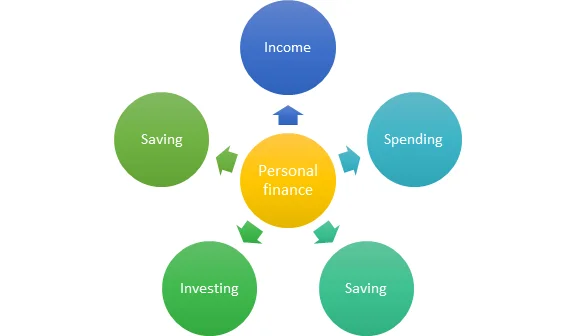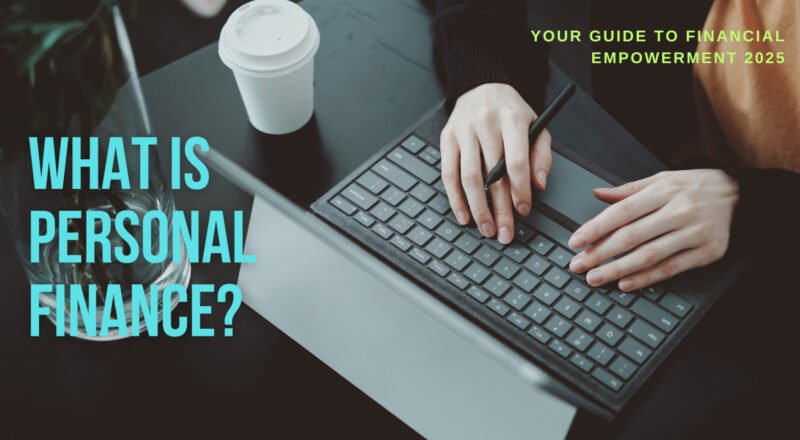What is Personal Finance?
Hook: Imagine working for decades, only to face retirement with anxiety instead of anticipation. Sarah, a 42-year-old teacher, lived paycheck to paycheck until a medical emergency forced her into $30,000 of debt. Her story isn’t rare—it’s what happens when we ignore what is personal finance until it’s too late.
Beyond Bank Balances: What Personal Finance Really Means
Personal finance is the conscious orchestration of your financial life. It’s not just budgeting or investing—it’s a holistic system for aligning money with life goals. As corporate finance experts define it, this process encompasses “planning and managing personal financial activities like income generation, spending, saving, investing, and protection” .
Modern personal finance evolved from early 20th-century home economics, pioneered by researchers like Hazel Kyrk and Margaret Reid at the University of Chicago. Their work revealed that financial decisions aren’t purely rational—they’re shaped by education, behavior, and societal pressures .

Table: Traditional vs. Modern Personal Finance
| Era | Focus | Tools |
|---|---|---|
| Pre-1950s | Basic budgeting | Cash envelopes, ledgers |
| 1980s-2000s | Debt management | Credit cards, mutual funds |
| Today | Holistic wealth & well-being | AI apps, ETFs, robo-advisors |
The 5 Pillars of Financial Sovereignty
- Income Awareness: Your financial journey starts here. Income isn’t just your salary—it includes bonuses, dividends, and side hustles. As New York Life emphasizes, this “source of cash inflow” funds everything else .
- Strategic Spending: The silent wealth killer. 💡 Pro Tip: Use the 50/30/20 rule—50% on needs, 30% on wants, 20% on savings/debt .
- Saving with Purpose: Not just hoarding cash. True saving means creating “an emergency fund that can last at least 6 months” . Automate this—even $25/month builds resilience .
- Investing Wisely: Where money grows legs. Stocks, bonds, or real estate aren’t gambling when you prioritize “low-cost, diversified mutual funds” aligned with your risk tolerance .
- Protection as Priority: Life’s curveballs demand armor. Insurance, estate planning, and “tax-advantaged funds like 401(k)s” shield your future .
Why This Matters More Than Ever
- Shortened Employable Age: Automation and global labor shifts are shrinking careers. Planning lets you “retire at 65 with $1M net worth” despite uncertainty .
- Soaring Life Expectancy: Living to 81+ means your savings must outlast you .
- Healthcare Costs: A leading cause of bankruptcy. Protection gaps exist even in developed nations .
- Financial Illiteracy: Only 57% of U.S. adults are financially literate (OECD data). 😮 Reality Check: Most schools still don’t require finance courses .
Table: Hidden Financial Risks & Solutions
| Risk | Impact | Defense Strategy |
|---|---|---|
| Medical emergency | $10k+ debt | Health insurance + 6-month emergency fund |
| Job loss | Income disruption | Side hustles + liquid savings |
| Inflation | Eroded purchasing power | Stocks/real estate investments |
| Long retirement | Outliving savings | Tax-advantaged retirement accounts |
Your 10-Step Action Plan
- Track Income Rigorously: Know your post-tax take-home pay .
- Budget Relentlessly: Apps like Mint or YNAB automate this.
- Slay High-Interest Debt: Credit card balances first—their interest is a “wealth killer” .
- Max Employer 401(k) Matches: It’s “free money”—don’t leave it behind .
- Insure Your Future: “Life, health, and disability insurance” protect your greatest asset—earning potential .
- Invest Early: $500/month at age 25 could grow to $1.4M by 65 (7% return).
- Monitor Credit: Scores dictate loan rates—aim for 750+ .
- Optimize Taxes: Use IRAs, 529 plans, or HSA accounts .
- Estate Planning: Wills and trusts aren’t just for the wealthy .
- Celebrate Milestones: Reward progress to sustain motivation .
The Unseen Benefit: Freedom
Financial guru Dave Ramsey wasn’t wrong: “Personal finance is 80% behavior and 20% head knowledge.” When you master money, you buy options:
- Walk away from toxic jobs
- Fund a child’s education
- Retire on your terms
As PSBT Bank notes, this control “reduces stress” and builds “wealth accumulation” .
Also read: The Life-Changing Importance of Personal Finance: Stop Surviving, Start Thriving 2025
Final Thought: Sarah turned her crisis around. She automated savings, negotiated medical bills, and now teaches students financial literacy. Start where you are—your future self will thank you.
“Money is a terrible master but an excellent servant.” – P.T. Barnum
